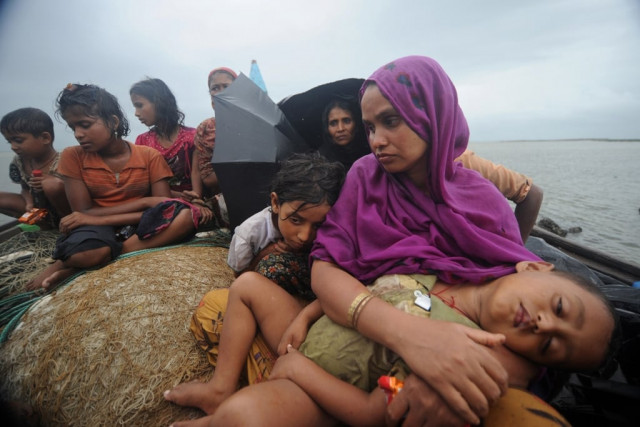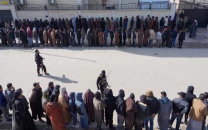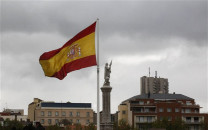UN says 22,000 displaced by Myanmar communal unrest
The latest fighting has killed more than 80 people, bringing the total toll since June to above 170.

Whole neighbourhoods were razed in unrest in Rakhine state this week, which has cast a shadow over the country's reforms and put further strain on relief efforts in the region, where some 75,000 people are already crammed into overcrowded camps following clashes between Buddhists and Muslims in June.
The United Nations chief in Yangon, Ashok Nigam, said government estimates provided early Sunday were that 22,587 people had been displaced and 4,665 houses set ablaze in the latest bloodshed.
"We have to say that this is a current estimate and we suspect there may be additional numbers," he told AFP, adding that 21,700 of those made homeless were Muslims.
"These are people whose houses have been burnt, they are still in the same locality," he told AFP, indicating that thousands more who had surged towards the state capital Sittwe may not be included in that estimate.
The latest fighting has killed more than 80 people, according to a government official, bringing the total toll since June to above 170.
In Minbya, one of around eight townships affected by the fighting, a senior police official told AFP that more than 4,000 people, mainly Muslims, had been made homeless after hundreds of properties in six villages were torched.
"Some victims are staying at their relatives' houses, some are in temporary relief camps, they are staying near those burnt areas," he said, adding that a heightened security presence had prevented further clashes.
"They are staying between Muslims and Rakhine people," he said.
Nigam, who has just returned from a visit to the region, said the UN was concerned both about the potential of a further spread of violence and that it would be "more challenging" to reach the displaced in some of the remote affected areas.
He said the UN had already started mobilising to take food and shelter to displaced communities, "but we will quickly need more resources".
Boatloads of people have arrived in Sittwe seeking shelter in camps on the outskirts of the city that are already packed with Muslim minority Rohingya following June's unrest.
Rakhine government spokesman Hla Thein on Saturday said around 6,000 people had arrived in Sittwe, posing a challenge to overstretched local authorities who were looking to relocate them to another area.
Festering animosity between Buddhists and Muslims have continued to simmer in Rakhine since the outbreak of violence in June.
Myanmar's 800,000 Rohingya are seen as illegal immigrants from neighbouring Bangladesh by the government and many Burmese -- who call them "Bengalis" -- and face discrimination that activists say has led to a deepening alienation from Buddhists.
Human Rights Watch on Saturday released satellite images showing "extensive destruction of homes and other property in a predominantly Rohingya Muslim area" of Kyaukpyu -- where a major pipeline to transport Myanmar gas to China begins.
The images show a stark contrast between the coastal area as seen in March this year, packed with hundreds of dwellings and fringed with boats, and in the aftermath of the latest violence, where virtually all structures appear to have been wiped from the landscape.
The stateless Rohingya, speaking a Bengali dialect similar to one in neighbouring Bangladesh, have long been considered by the United Nations as one of the most persecuted minorities on the planet.
Bangladesh on Thursday mobilised extra patrols along its river border with Myanmar amid reports of dozens of boats carrying Rohingya Muslim refugees fleeing the clashes.



















COMMENTS
Comments are moderated and generally will be posted if they are on-topic and not abusive.
For more information, please see our Comments FAQ